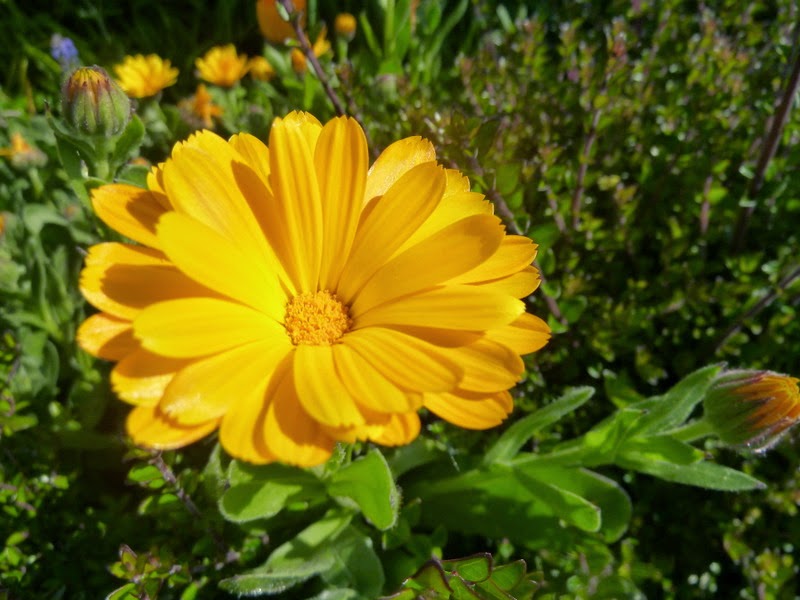Today's walk heads from Ventnor to St Lawrence, a sprawling village nestling in the Undercliff. There has been a settlement here since the 12th century, but it was the Victorians who were inspired to build the many attractive villas along the rugged slopes of the Undercliff.
Not far from my home, the Italianate belvedere tower villa Ravenscourt perches on the slopes of the downs, dating from 1840-50.
From Ocean View Rd, descend Gills Cliff Rd to Whitwell Rd, passing elevated villas with steeply banked gardens in spring bloom.
 |  |
 |  |
Head downhill by this wooden sign to reach Pelham Wood.

The Undercliff is an ancient, yet active, landslip zone and the path runs below the Upper Greensand cliffs of the road above.
This intriguing staircase leads to other paths through the wood but I ignored it, following the main path to come out on Undercliff Drive.At the road you have two options to reach the coast and return to Ventnor. Turn left for the shorter route and pick up the footpath by Bank End Farm to meet the coastal path where it runs behind the Botanical Gardens, as seen here from the coastal end here.
For the longer route via the parish church, cross the road and take the detour behind the wall to come to St Lawrence Well.
It is said the the roadside spring was used by early Christian pilgrims, but during the 19th century it was enclosed in a Gothic grotto within the grounds of Sir Richard Worlsley's Marine Villa. An annual well-dressing here is a more recent tradition.
Heading up the lane beside the village church will lead past this bank to the 12th century old church, one of the smallest in the country.
Continue along Undercliff Drive to the west to come to another Victorian gem, the parish church, which dates from 1867 and is remarkable for its fine collection of stained glass windows by Morris and Co.
The windows by the Pre-Raphaelite artists Edward Burne-Jones and Ford Maddox Ford originally adorned the chapel of the nearby Royal National Hospital for Diseases of the Chest until it closed in 1969.
Along the south wall are three apostles, St John, by Burne-Jones, (above),
St Luke, by Maddox Brown
and St Peter, also by Burne Jones. The parable of the sower is by Walter Tower.
The stunning Hospital Chapel West window is the work of Sir William Reynolds-Stephens, a follower of the later Pre-Raphaelite School depicting ministering angels.

In a lightbox on the north wall are windows designed and produced by William Morris.
To get to the coastal path continue a little way and turn left along Woolverton Rd to meet the coast by some white cottages. It is possible to go a little further and take a footpath to the same place. Another fine late Victorian villa appears through trees on the left, St Rhadagund's, now a Christian retreat and holiday centre.

Another fine villa is passed, Tower Lodge, once part of Woolverton Manor estate.
This is one of those spots where it is definitely a bad idea to keep to the path!
The coastal path offers good views of the Undercliff properties.
The coastal path was lined with blackthorn bushes in full blossom.
The Lighthouse B and B at Steephill Cove appears hazily through trees.
We pass Ventnor cricket club, one of the few flat spaces in the town.
After about 45 mins, we reach the outskirts of Ventnor at Flowersbrook.
and emerge at the beginning of the bay above the Spyglass Inn.
Walk Details:
Distance: 5 miles
Time: 3 hours
Refreshments and WC: Ventnor seafront, Steephill Cove








































No comments:
Post a Comment